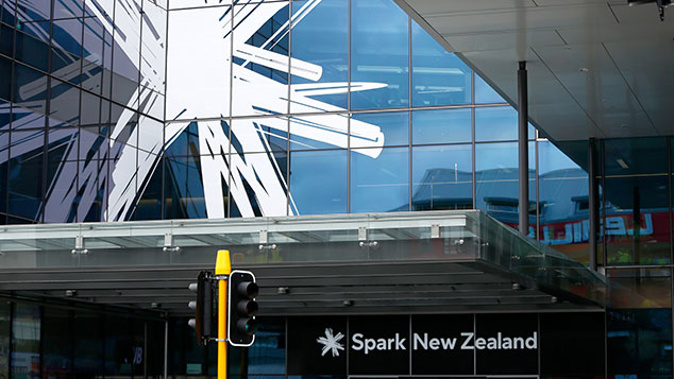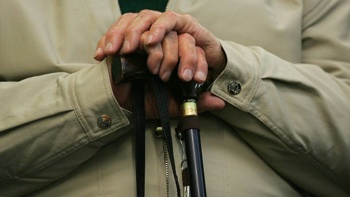
Phil Pennington of RNZ
Soon after Cyclone Gabrielle - when cellphone and internet networks were shattered - Spark went to the Government offering to swap $24 million it planned to spend on a 5G rollout, and instead invest in disaster-proofing networks.
The Government said no.
RNZ inquiries show government officials had been warning ministers for years that getting network operators - the telecommunications companies like Spark and Vodafone and Chorus - to invest in resilience was difficult, versus them investing in tech upgrades like 5G.
“Investing in resilient infrastructure is expensive and not typically commercially viable for private network operators,” the digital economy minister was told in 2021.
“Resilient networks do not improve day-to-day service quality, and so customers are not usually willing to pay for it.”
But Spark’s offer on February 24 was rejected, with the Government finalising the 5G deal just two weeks ago on May 12.
The cyclone in February showed how vulnerable the country’s critical national communications infrastructure was.
Cities and regions across the upper North Island were cut off, with hundreds of cell towers losing power and fibre-optic cables severed by floods hitting bridges which carried them.
/cloudfront-ap-southeast-2.images.arcpublishing.com/nzme/WFMAAGJFSZAQ5A57KM27UENSFY.jpg)
Wairoa was hit hard by Cyclone Gabrielle. Photo / Wairoa District Council
Tai Rāwhiti and Hawke’s Bay had thousands of people cut off for days.
More than 100 pages of OIA documents released to RNZ by the digital economy minister show the Government has been struggling for years to grasp the risks to communications from natural disasters, to get to grips with what telecommunication providers were doing to improve resilience, and to deploy its own limited powers to hasten change.
When Spark came calling, offering to change tack, it was an unprecedented response to unprecedented devastation.
RNZ asked Spark what went on.
“At the time, as the key terms were not yet final, Spark signalled to MBIE that we would be willing to discuss changing the proposed commitment to accelerate Spark’s 5G rollout, to instead focus on developing increased network resilience,” it said.
“We signalled that this could be an opportunity worth discussing either during the current spectrum allocation process or for future allocation processes.
“In this instance, the government decided they wished to continue with the focus on accelerated 5G rollout.”
Spark was looking to spend another $40m to $60m within five years, linked to the contract.
Digital Economy and Communications Minister Ginny Andersen said the Government did not want to upset the three linked contracts - with Spark, 2degrees and One NZ (formerly Vodafone) - to improve provincial and rural connectivity.
“To re-open negotiations with all three telcos to consider Spark’s proposal would have held up the acceleration of 5G rollout and other important rural connectivity initiatives,” she said in a statement on Thursday.
“I am extremely proud of the deal we struck.”
The deal will expand 5G mobile in the countryside and make it better - but will it be more resilient?
That depended not just on telco networks, but on more resilient power lines, since the cell towers were taken out by power cuts, and there were not enough generators in back-up.
Briefings over several years to the minister carry warnings that as telco networks have expanded, increased centralisation has in some key ways made them more vulnerable, not less, with more channels going through fewer key nodes.
Gisborne had just two fibre-optic cables into it; both were cut in Cyclone Gabrielle.
The Canterbury floods of 2019 and 2021 took out fibre-optic cable on bridges, the West Coast lightning strikes severed internet to tens of thousands for two days - government-funded resilience work has gone on there.
In late 2021, Andersen’s predecessor David Clark wrote to all the big network operators, imploring them to tell him what they saw as the “top three” risks and which risks their plans did not account for.
Last year, Clark “expressed concern about the lack of detailed information” he got back.
Officials then advised the best way forward was for the Government to push through broader critical infrastructure reforms.
“There are no consistent or clear resilience standards that network operators ... are required to follow regarding the resilience of their networks and/or services,” a 2021 ministerial briefing said.
“It is difficult to develop these standards in a way that is logical, fair and commercially viable for operators without considerable government funding.”
A note in the OIA papers shows when Spark went to MBIE in late February, it was “obviously positioning things with the government playing a key funding role”.
Spark said suggesting the option of taxpayers paying up to half the costs of making phone and internet systems more disaster-proof was “worth exploring”.
That will add up to billions - even the immediate restoration of networks after Gabrielle, from Northland to Tinui, was costing a huge amount to public and private entities.
What Australia was doing, with half the tab falling to the Government, was worth exploring here, Spark said.
It already spent $100m a year on resilience, and Cyclone Gabrielle “showed that a broad range of further resilience work is required”.
The company and wider industry were working on that.
“However, we also think that is worth seeing what overseas models could be emulated ... for rural and regional network locations where it is not commercially viable for commercial operators to fund significant improvements in resilience. In those areas we believe co-funding models will be appropriate.”
Cyclone Recovery Minister Grant Robertson declined to have input and Andersen would not be interviewed.
Take your Radio, Podcasts and Music with you









